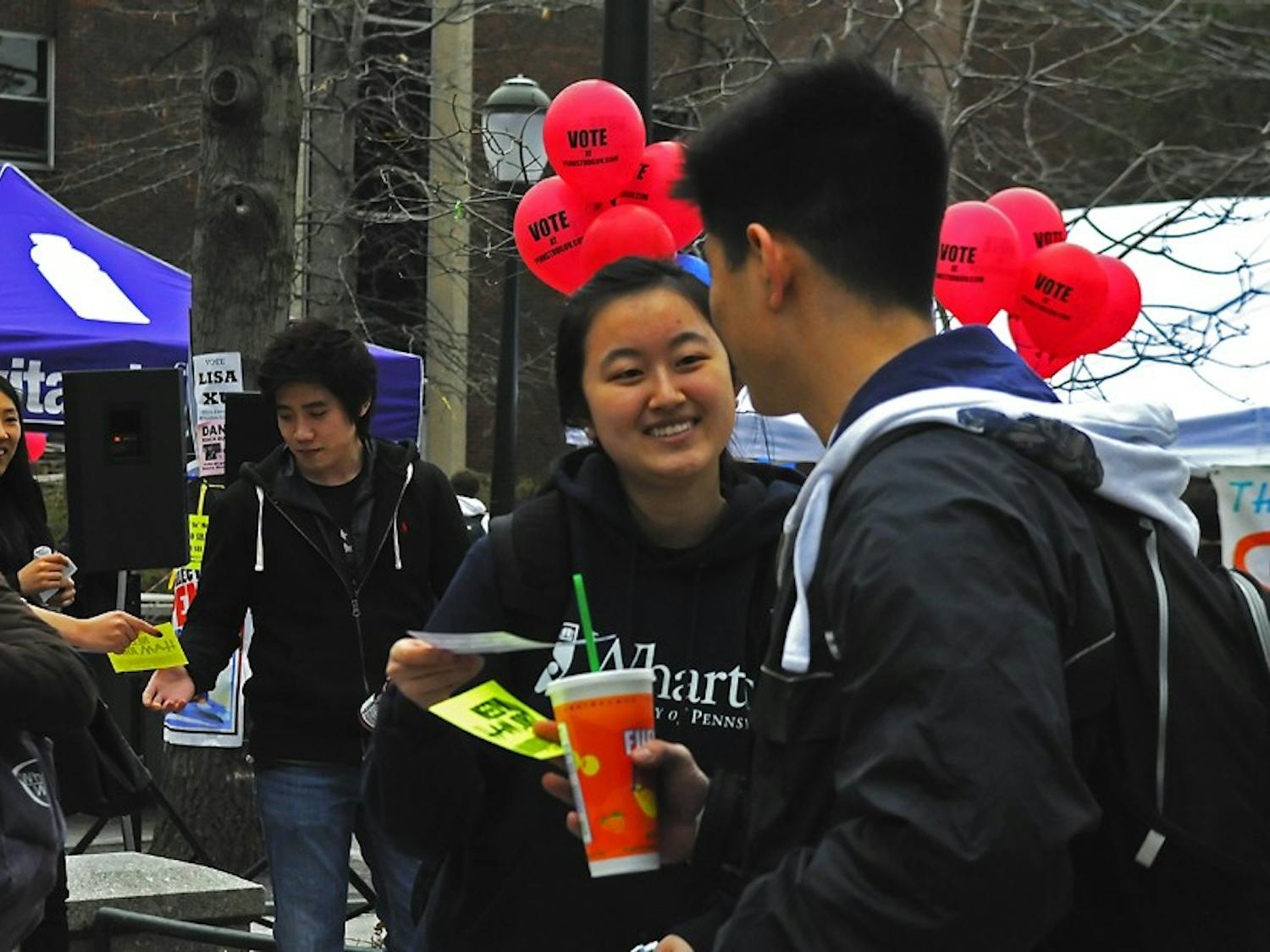Several minority coalitions on campus were angered by the Nominations and Elections Committee’s handling of this year’s applications for University Council seats.
The NEC — a branch of student government that consists of 36 undergraduate members — selects representatives from student groups to join the UC, an open forum between students and administrators.
NEC is also entrusted to oversee the Penn Student Government election process and nominate individuals to other university-wide committees.
Minority groups did not receive note of the application through the UA Steering email listserv until March 21, the day the applications were due.
Former Asian Pacific Student Coalition chair and Wharton senior Rohan Grover was very displeased at the way the application process was conducted, citing that it was unfeasible to complete the application in less than 24 hours.
In response to complaints from various groups, the NEC postponed the deadline first to March 23 and then April 4.
Instead of advertising the UC application through student groups’ listservs this year, the NEC solicited groups they believed to be underrepresented on campus on an individual basis. Minority groups were originally overlooked because many of them have strong presences in Student Government and on campus.
The NEC also moved the UC application period from January to March.
The UC allots 16 seats to the Undergraduate Assembly and student groups. The United Minorities Council holds a permanent seat on the Council, while APSC, the Latino Coalition, UMOJA and the Lambda Alliance must apply for seats. In the past, the coalitions have generally held seats.
“We had not been receiving a high level of applications in prior years and wanted to use a more direct approach this year to boost applications, a tactic that has yielded nearly double the usual amount of applications,” NEC Chairman Nicholas Greif wrote in an email.
This might be “something that current groups may not like as it means there will be more competition for seats,” Greif added.
Grover believes that all the minority coalitions should hold permanent seats on the UC.
“The NEC doesn’t respond to any authority figure. Besides their own self-granted guidelines … [no one] is there to ensure that their members are capable of determining which communities are underrepresented to the administration,” he said.
A member of the UA is required to sit in on NEC meetings and deliberations to ensure fair proceedings within the committee, College senior and UA president Matt Amalfitano said.
“In this situation, communication broke down between the NEC chairs and the student groups,” Amalfitano said.
He believes the NEC should be commended for trying a new marketing strategy, even though it was not received as well as they had hoped.
“At the end of the day, they made a smart decision to push the deadline back. All will benefit from this decision,” he said.






